






- Total
- General
- Arts
- Book
- Culture
- Economy
- Essay
- Fun/Joke
- History
- Hobbies
- Info
- Life
- Medical
- Movie
- Music
- Nature
- News
- Notice
- Opinion
- Philosophy
- Photo
- Poem
- Politics
- Science
- Sports
- Travel
Music Winterreise[Winter Journey] Franz Schubert
2023.04.01 03:08
|
Winterreise Winterreise (German pronunciation: [ˈvɪntɐˌʁaɪzə], Winter Journey) is a song cycle for voice and piano by Franz Schubert (D. 911, published as Op. 89 in 1828), a setting of 24 poems by German poet Wilhelm Müller. It is the second of Schubert's two song cycles on Müller's poems, the earlier being Die schöne Müllerin (D. 795, Op. 25, 1823). Am Brunnen vor dem Tore, Da steht ein Lindenbaum; Ich träumt’ in seinem Schatten So manchen süssen Traum. Ich schnitt in seine Rinde So manches liebe Wort; Es zog in Freud’ und Leide Zu ihm mich immer fort. Ich musst’ auch heute wandern Vorbei in tiefer Nacht, Da hab’ ich noch im Dunkel Die Augen zugemacht. Und seine Zweige rauschten, Als riefen sie mir zu: Komm her zu mir, Geselle, Hier findst du deine Ruh’! Die kalten Winde bliesen Mir grad’ in’s Angesicht, Der Hut flog mir vom Kopfe, Ich wendete mich nicht. Nun bin ich manche Stunde Enfernt von jenem Ort, Und immer hör’ ich’s rauschen: Du fändest Ruhe dort! By the well, before the gate, stands a linden tree; in its shade I dreamt many a sweet dream. In its bark I carved many a word of love; in joy and sorrow I was ever drawn to it. Today, too, I had to walk past it at dead of night; even in the darkness I closed my eyes. And its branches rustled as if they were calling to me: ‘Come to me, friend, here you will find rest.’ The cold wind blew straight into my face, my hat flew from my head; I did not turn back. Now I am many hours’ journey from that place; yet I still hear the rustling: ‘There you would find rest.’ Der Lindenbaum sheet music ![{ \new Staff << \relative c'' { \set Staff.midiInstrument = #"clarinet" \tempo 4 = 90 \set Score.tempoHideNote = ##t \key e \major \time 3/4 \autoBeamOff \set Score.currentBarNumber = #8 \override TupletBracket #'bracket-visibility = ##f \set Score.barNumberVisibility = #all-bar-numbers-visible \bar "" \partial 8 b8 | b4. gis8 gis gis | gis4 e r8 e8 | fis4. gis8 {\times 2/3 { a[( gis)] fis }} | e2 } \addlyrics { Am Brun- nen vor dem To- re da steht ein Lin-- den- baum } >> }](http://upload.wikimedia.org/score/9/c/9c0d2q5megs4i1jjkfsp9ian7en10sm/9c0d2q5m.png) Der Lindenbaum song Der Lindenbaum image  Manche Thrän' aus meinen Augen Ist gefallen in den Schnee; Seine kalten Flocken saugen Durstig ein das heiße Weh. [Wann]1 die Gräser sprossen wollen, Weht daher ein lauer Wind, Und das Eis zerspringt in Schollen, Und der weiche Schnee zerrinnt. Schnee, du weißt von meinem Sehnen: [Sag mir, wohin]2 geht dein Lauf? Folge nach nur meinen Thränen, Nimmt dich bald das Bächlein auf. Wirst mit ihm die Stadt durchziehen, Muntre Straßen ein und aus: Fühlst du meine Thränen glühen, Da ist meiner Liebsten Haus. English Translation Many a tear from my eyes has dropped into the snow. Its chilly flakes suck thirstily up my burning woe. When the grass begins to shoot, a warm breeze will blow there, and the ice will melt in torrents and the snow will dissolve. Snow, you know of my longing: say, which way will you flow? Just follow my tears: their stream will soon carry you away. You will course the town with them, in and out of cheerful streets. When you feel my tears grow warm, that will be my sweetheart’s house. Wasserflut sheet music 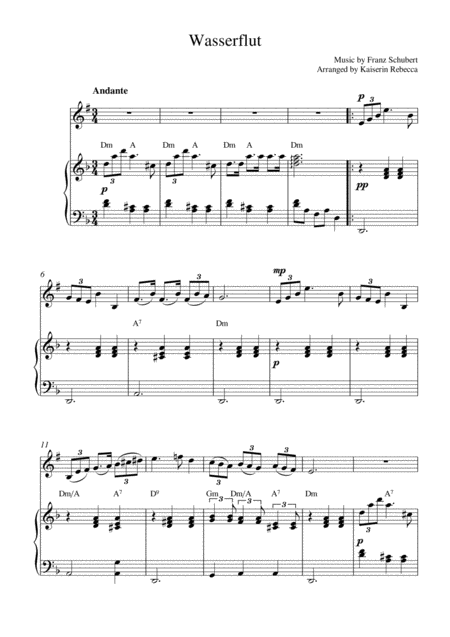 Wasserflut song Wasserflut image 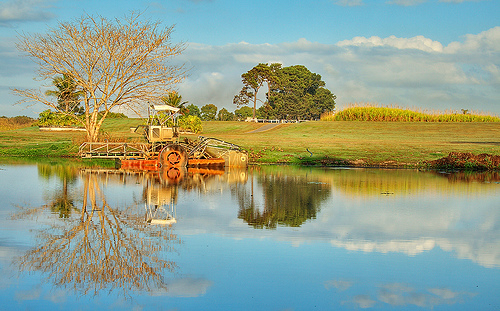 Drüben hinterm Dorfe Steht ein Leiermann Und mit starren Fingern Dreht er was er kann Barfuß auf dem Eise Wankt er hin und her Und sein kleiner Teller Bleibt ihm immer leer Und sein kleiner Teller Bleibt ihm immer leer Keiner mag ihn hören Keiner sieht ihn an Und die Hunde knurren Um den alten Mann Und er läßt es gehen Alles wie es will Dreht, und seine Leier Steht ihm nimmer still Dreht, und seine Leier Steht ihm nimmer still Wunderlicher Alter! Soll ich mit dir geh'n? Willst zu meinen Liedern Deine Leier dreh'n? The Hurdy-Gurdy Player There, beyond the village, stands a hurdy-gurdy player; with numb fingers he plays as best he can. Barefoot on the ice he totters to and fro, and his little plate remains forever empty. No one wants to listen, no one looks at him, and the dogs growl around the old man. And he lets everything go on as it will; he plays, and his hurdy-gurdy never stops. Strange old man, shall I go with you? Will you turn your hurdy-gurdy to my songs? Alternative Translation Back of the village stands a hurdy-gurdy man, cranking his instrument with frozen fingers. His begging bowl is always empty; no one listens, and the dogs growl at him. But his playing never stops. "Strange old man. Shall I come with you? Will you play your hurdy-gurdy to accompany my songs?" Der Leiermann sheet music  Der Leiermann song Der Leiermann image 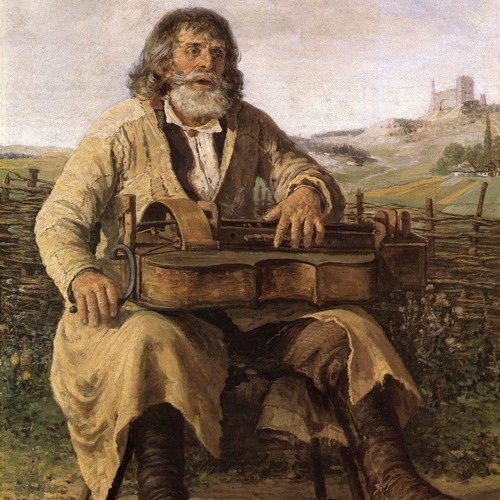 Franz Schubert 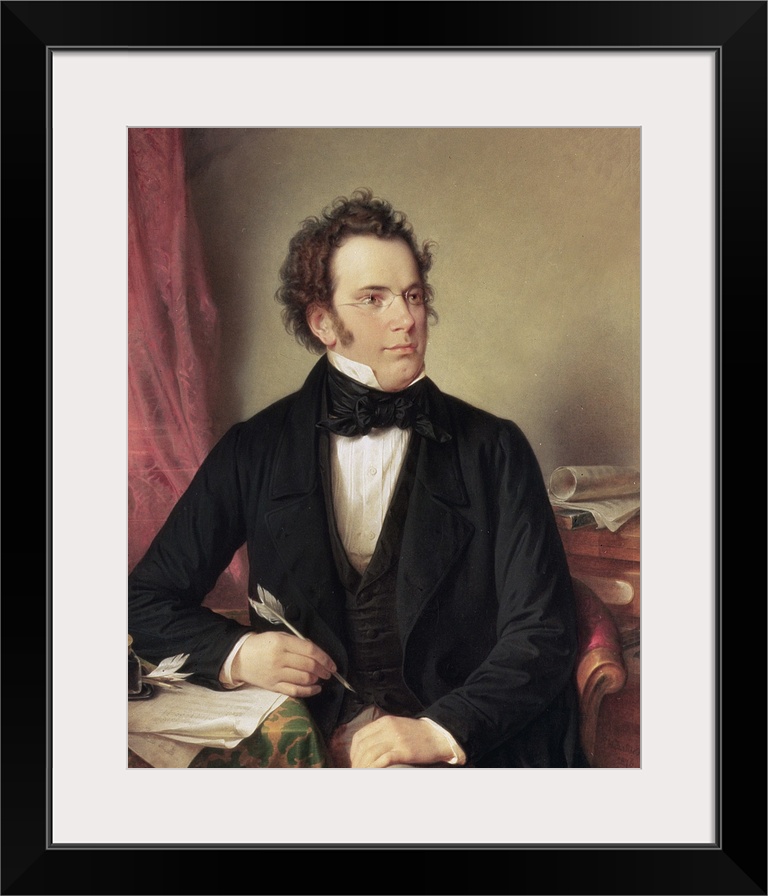 Kwan Ho Chung - April 1, 2023 |
Comment 3
-
어렸을 적 소학교시절에 기억났던 보리수노래였다.
성문앞 우물곁에 서있는 보리수,
나는 그 그늘아래 단꿈을 꾸었네.
가지는 흔들려서 나에게 말하는 듯,
친구여 여기와서 안식을 찾으라.
친구여 여기와서 안식을 찾으라.
-
요즘 우리말 번역은 어떤가? 찾아보자.
보리수(Der Lindenbaum)
성문앞 우물곁에 서있는 보리수
나는 그 그늘아래 단꿈을 보았네.
가지에 희망의 말 새기어 놓고서
기쁘나 슬플 때 찾아온 나무 밑
오늘 밤도 지났네, 그 보리수 곁으로
깜깜한 어둠속에 눈 감아 보았네.
가지는 산들 흔들려 내게 말해주는 것 같네
'이리 내 곁으로 오라, 여기서 안식을 찾으라'고
찬 바람 세차게 불어와 얼굴을 매섭게 스치고
모자가 바람에 날려도 나는 꿈쩍도 않았네.
그곳을 떠나 오랫동안 이곳 저곳 헤매도
아직도 속삭이는 소리, "여기 와 안식을 찾으라"
| No. | Subject | Date | Author | Last Update | Views |
|---|---|---|---|---|---|
| Notice | How to write your comments onto a webpage [2] | 2016.07.06 | 운영자 | 2016.11.20 | 18147 |
| Notice | How to Upload Pictures in webpages | 2016.07.06 | 운영자 | 2018.10.19 | 32282 |
| Notice | How to use Rich Text Editor [3] | 2016.06.28 | 운영자 | 2018.10.19 | 5872 |
| Notice | How to Write a Webpage | 2016.06.28 | 운영자 | 2020.12.23 | 43794 |
| 335 | OPERA MIGNON: Connais tu le pays [1] | 2024.04.12 | 정관호*63 | 2024.04.12 | 23 |
| 334 | My Grandson [1] | 2024.03.15 | 노영일*68 | 2024.03.18 | 105 |
| 333 | AMAZING GRACE [1] | 2024.03.01 | 정관호*63 | 2024.03.08 | 65 |
| 332 | 성불사의 밤 [1] | 2023.10.20 | 정관호*63 | 2023.10.23 | 86 |
| 331 | 두만강 노래 [1] | 2023.09.25 | 정관호*63 | 2023.09.30 | 66 |
| 330 | The Gift of Music [2] | 2023.09.13 | 김성철*67 | 2023.09.13 | 63 |
| 329 | 이야기로 듣는 옛노래: 황성 옛터 [3] | 2023.07.26 | 정관호*63 | 2024.01.14 | 101 |
| 328 | Solveig's Cradle Song: 솔베이지 노래 [1] | 2023.06.16 | 정관호*63 | 2023.06.19 | 57 |
| 327 | The Fair Maid of the Mill [1] | 2023.06.02 | 정관호*63 | 2023.06.02 | 115 |
| 326 | 사의 찬미 [死의 讚美] [1] | 2023.05.15 | 정관호*63 | 2023.05.15 | 94 |
| 325 | 봉선화(봉숭아) [1] | 2023.04.13 | 정관호*63 | 2023.05.11 | 161 |
| » | Winterreise[Winter Journey] Franz Schubert [3] | 2023.04.01 | 정관호*63 | 2023.05.02 | 436 |
| 323 | 고향초 [6] | 2023.03.11 | 정관호*63 | 2023.11.02 | 105 |
| 322 | 신라의 달밤 [1] | 2023.01.26 | 최광택*70 | 2023.01.31 | 96 |
| 321 | 우리손자 2022 [3] | 2022.08.14 | 노영일*68 | 2022.09.11 | 156 |
| 320 | AGT: Korean Singer Group "Maytree" [2] | 2022.07.20 | 온기철*71 | 2022.07.20 | 73 |
| 319 | 한국의 천재적 소년 Pianist, 임윰찬 | 2022.07.13 | 운영자 | 2022.07.13 | 112 |
| 318 | 부산 공연 - Placido Domingo and 김호중 [1] | 2022.06.28 | 운영자 | 2022.06.28 | 88 |
| 317 | 아! 대한민국 [1] | 2022.05.05 | 운영자 | 2022.05.05 | 81 |
| 316 | Finlandia | 2022.05.04 | 김성철*67 | 2022.05.04 | 57 |

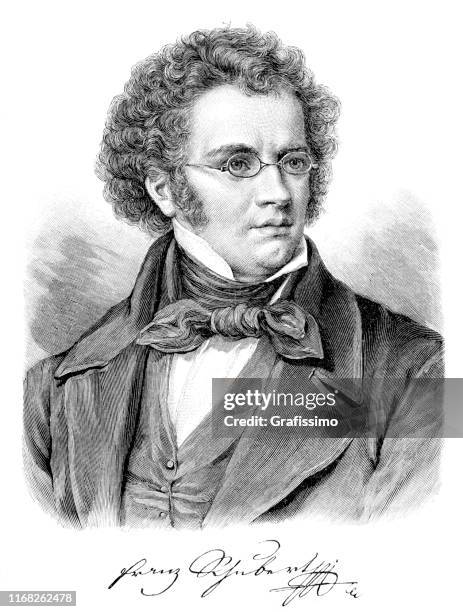 Franz Peter Schubert (German: [ˈfʁant͡s ˈpeːtɐ ˈʃuːbɐt]; 31 January 1797 – 19 November 1828) was an Austrian composer of the late Classical and early Romantic eras. Despite his short lifetime, Schubert left behind a vast oeuvre, including more than 600 secular vocal works (mainly lieder), seven complete symphonies, sacred music, operas, incidental music, and a large body of piano and chamber music. His major works include "Erlkönig" (D. 328), the Piano Quintet in A major, D. 667 (Trout Quintet), the Symphony No. 8 in B minor, D. 759 (Unfinished Symphony), the "Great" Symphony No. 9 in C major, D. 944, the String Quintet (D. 956), the three last piano sonatas (D. 958–960), the opera Fierrabras (D. 796), the incidental music to the play Rosamunde (D. 797), and the song cycles Die schöne Müllerin (D. 795) and Winterreise (D. 911).
Franz Peter Schubert (German: [ˈfʁant͡s ˈpeːtɐ ˈʃuːbɐt]; 31 January 1797 – 19 November 1828) was an Austrian composer of the late Classical and early Romantic eras. Despite his short lifetime, Schubert left behind a vast oeuvre, including more than 600 secular vocal works (mainly lieder), seven complete symphonies, sacred music, operas, incidental music, and a large body of piano and chamber music. His major works include "Erlkönig" (D. 328), the Piano Quintet in A major, D. 667 (Trout Quintet), the Symphony No. 8 in B minor, D. 759 (Unfinished Symphony), the "Great" Symphony No. 9 in C major, D. 944, the String Quintet (D. 956), the three last piano sonatas (D. 958–960), the opera Fierrabras (D. 796), the incidental music to the play Rosamunde (D. 797), and the song cycles Die schöne Müllerin (D. 795) and Winterreise (D. 911).
There was a time when I had purchased a full set of McIntosh Stereo and started to collect LPs of classical music.
It was long, long ago, and now I don't have any of those collections since the stereo was not working and couldn't be repaired.
Out of the collections, Franz Schubert's songs were the most memorable.
So I tried to get a few youtube to hear them.
What a nostalgic attempt!